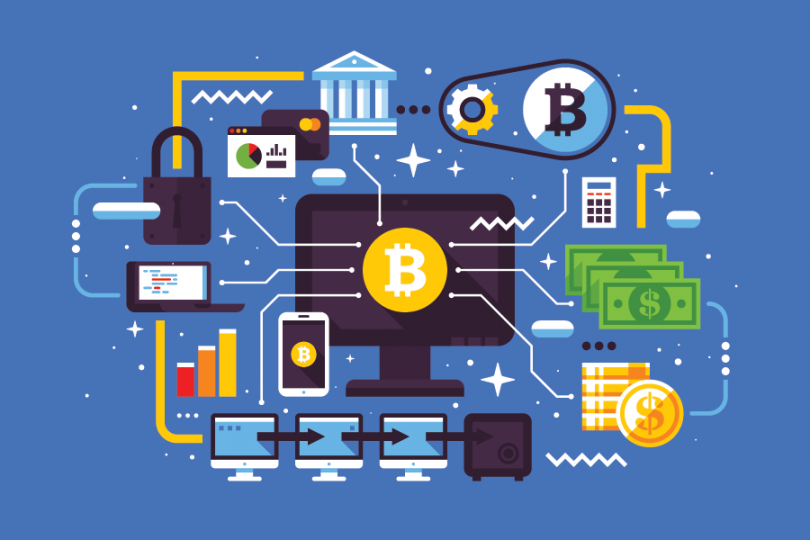There are a variety of real-world applications for Blockchain technology. In fact, blockchain technology has the potential to revolutionize many fundamental aspects of current business practices. From fund transfers and banking to supply chain management and real estate transactions, blockchain technology, whether we know it or not, is becoming invaluable to almost every business and social interaction we engage in.
Solving Supply Chain Issues with Blockchain
Blockchain technology is particularly effective for resolving some of our world’s current challenges around supply chain inefficiencies. Blockchain allows for more cost-effective, transparent, and automated supply chain monitoring and can therefore improve speed and efficiency in delivering goods and services to the world.
The ability to track and detect the location of supplies in real-time and to have that information immediately available to all users in the network is one of the many advantages of using blockchain technology to support supply chain management. Automated payments generated upon delivery and smart-contracts negotiated between suppliers and retailers can further speed up transactions by saving time and guaranteeing payments are fulfilled upon receipt.
Blockchain technology builds trust and security into the network thereby enabling the faster flow of goods. In essence, the greater efficiency of blockchain technology will mean less disruption in the delivery of goods and could help alleviate some of our current global issues in this area.
Application of Blockchain in Real Estate
The world of real estate has been relatively slow to adapt to the full potential of blockchain technologies, however, there is very good reason to anticipate that this will soon change. Blockchain technology has the potential to drastically alter the way we buy and sell real estate.
Beyond using cryptocurrencies for the purchase of real estate, blockchain technology can be used to speed up real estate transactions from appraisals to final sale and transfers of ownership.
Having online access to all information concerning a particular property, including land title, deed, land registry information, surveys and other technical data about a property could significantly speed-up real estate transactions. Likewise, the terms of any sale agreement, will be accessible and transparent to all parties involved thereby lessening the chances of disagreement or confusion.
Incidences of real estate fraud can also be diminished as all related data will be available on blockchain’s immutable, secure network. Fee payments for attorneys or brokers could also be automated on the blockchain making the entire transaction faster and simpler.
Blockchain Companies and Ethical Sourcing
Blockchain provides an ideal format for ensuring that products and materials are sourced and produced ethically. Blockchain ledgers allow companies and consumers to access the full record of production. This verifiable and immutable record enables producers and retailers to prove products were created using only ethical production methods. Consumers can verify that from extraction of raw materials to final manufacturing, the products have been created using the highest ethical standards.
Cost savings through digitization of records and innate blockchain security will also improve efficiency and thereby allow companies to invest in more environmentally friendly production methods and practices.
Farm to Table Tracking on Blockchain
Like the ways in which blockchain can improve our ability to source out products produced using ethical methods, food production can also be tracked from farm to table using blockchain. Food can be traced through its production and shipping thereby ensuring all parties have access to a full, transparent, and tamper-proof record.
Not only does this improve supply chain efficiency, but it can also pinpoint any contamination or spoilage quickly, reducing the need for food recalls and waste. Consumers likewise can benefit from knowing exactly where their food came from and how it was produced. Retailers can easily share this information with potential customers and certification of food status, such as organic certification, can be verified with blockchain technology, improving trust between producers and consumers.
Bitcoin Mining, Cryptocurrency and Decentralized Banking
Blockchain technology was first used to create the cryptocurrency, Bitcoin. Since its inception, numerous other cryptocurrencies, most prominently Ethereum, have emerged and these digital currencies are changing the face of finance across the globe.
Cryptocurrencies can now be used for a slew of financial transactions and some countries, like El Salvador, have even adopted Bitcoin as its national currency. This historic event has the potential to benefit many residents as it is estimated that as many as 70% of El Salvador’s population do not have a bank account.
Using a digital currency provides individuals previously left out of the global economy access to financial services. Moreover, migrants working abroad can quickly and easily send money home to their families using only a crypto-wallet and their phones.
Not only does the use of cryptocurrencies help those living in countries with unstable currencies or limited access to financial services, but mining bitcoin can be an option for individuals and states to create security. Bitcoin mining sites can be set up in areas with little services or infrastructure, so long as there is access to energy resources.
There are many real-world applications of blockchain technology, many of which are only beginning to be harnessed. Without doubt, blockchain technology will only become more prominent over time. Fintech jobs and careers in blockchain technology are dominating the tech job market and those individuals willing to invest in learning about blockchain technology will surely reap the rewards.
Free Introduction to Blockchain Course developed by professor and blockchain expert Dr. Justin Goldston.

